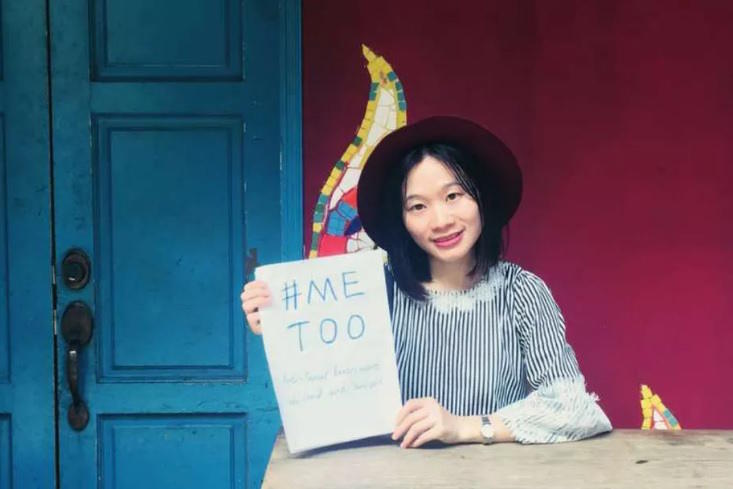"I was never allowed to call my lawyer or my family. I spent days chained, blindfolded, and hooded. Other times I was forced to squat against the wall. And there were nights when they made me sing the Chinese national anthem for hours to keep me awake." This is the account of Simon Cheng, who in 2019 worked as a commercial advisor at the British consulate in Hong Kong when the Chinese secret police arrested him for 15 days in the neighboring city of Shenzhen.
Three months after being released, Cheng claimed he was tortured because the Chinese agents wanted him to confess that he was a UK spy. The Chinese authorities eventually acknowledged Cheng's detention, claiming he had violated a public security law. State media went further, stating that the real reason for the arrest was that Cheng "regularly used prostitution services."
Also in 2019, Sophia Huang, a journalist who had become a prominent figure in the #MeToo movement for assisting several plaintiffs in a sexual harassment case involving a prominent professor at Peking University, was detained in isolation accused of "causing trouble," a vague offense authorities often use to silence dissidents.
None of her family knew anything about her until late 2020 when she was released. In September 2021, after continuing her activism, Huang "disappeared" again at the airport in the southern city of Guangzhou, where she was about to board a flight to the United Kingdom. It took over six months for authorities to announce charges against her. Last summer, she was sentenced to five years in prison for inciting "subversion of state power."
Both Huang and Cheng went through the RSDL, which refers to "Residential Surveillance at a Designated Location." It is an extrajudicial prison system that emerged from a 1996 legal provision and was updated in 2012, allowing the Chinese police, under the Criminal Procedure Law, to isolate individuals accused of endangering national security for up to six months, excluding lawyers from the process. A black hole of forced disappearances that many activists have gone through and that in recent weeks has been under critical scrutiny by Chinese jurists.
It all started in mid-December when the relatives of a businessman detained for operating online casinos - gambling is prohibited in China - protested in Beijing because this person had hanged himself months earlier while in police custody. The news, which made headlines in state media, led several judicial officials to publicly criticize the torture suffered by some detainees who had been incommunicado without being formally charged with any crime.
Xing's death sparked several calls for the government to end the RSDL. Critics point out that this system was initially established as a temporary detention center that was less restrictive than provisional imprisonment. However, when the 2012 law revision indicated that these places could be used to interrogate suspects of threats to national security or serious corruption cases, the police began to rely much more on this "residential surveillance" and another system of extrajudicial detentions, the liuzhi, established in 2018 specifically for officials and members of the ruling Chinese Communist Party (CCP) involved in corruption cases.
Even in documents accessed by The Economist, the Supreme People's Procuratorate of China (SPP), the body responsible for prosecuting crimes and overseeing law enforcement, denounced torture, such as "starvation and sleep deprivation," committed under these "forced disappearances," as human rights groups call them.
Last year, the China Human Rights Defenders (CHRD) network published a report documenting cases of activists and dissidents "disappeared" under this arbitrary detention system. It cited the testimony of advisor Simon Cheng and also the case of human rights lawyer Wang Quanzhang, who was arrested in August 2015, and until July 2018, his family did not know if he was alive, dead, or detained.
This newspaper interviewed the wife of Chang Weiping, another lawyer who was "disappeared" between October 2020 and April 2021 when he was formally charged with "subversion of state power." The woman claimed that her husband had been tortured during the first five months he spent under the RSDL. "Interrogations lasted six consecutive days. They locked him in a room tied to a stool, and he couldn't move from there the whole time," she recounted.
Chang participated in a meeting in the city of Xiamen in 2019 with about twenty Chinese lawyers and activists critical of the government. Ding Jiaxi, one of the founders of the New Citizens Movement, a group that unsuccessfully tried to work within the system for future political change in China towards democracy, was also present. Ding also spent several months in the RSDL before being placed in provisional detention accused, like the other cases mentioned, of "subversion of state power." In 2023, he was sentenced to 12 years in prison.
